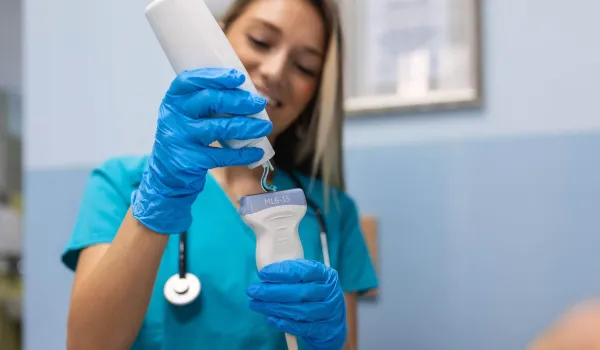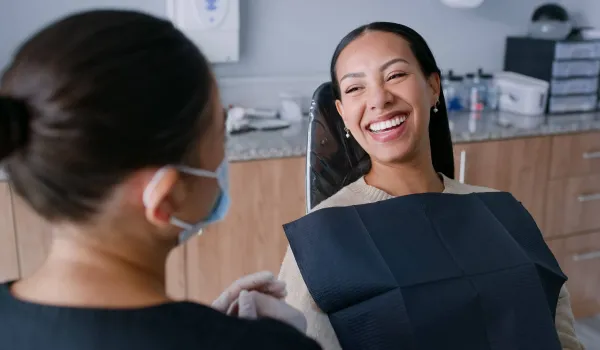
We know all of our Concorde students, whether in health care studies for their nursing degree, dental hygiene degree, massage therapy degree, surgical technology degree or something else, are constantly taking or preparing to take exams. It's simply part of the learning experience - show what you know. Pass or fail, it's up to you.
With all those tests comes preparation, and it's certainly common for students to constantly look for an edge that will help them succeed at scoring well and impressing their instructors and fellow classmates. They're looking for advice or means to accomplish their health care studies more quickly and effectively.
Let's look at some different ways we can be effective in our studies with apps, hacks, and note-taking.
Apps that support studying
When it comes to student mobile apps, there's a wide range of them that fall under the broad term of "educational." Get smart with these apps, listed in no particular order. They're available on iStore and Google Play.
Quizlet - Wouldn't it be great to have all those study notes in your pocket to take with you on the road?
The Quizlet app is designed for marathon study sessions. It's basic but allows you to create your own flashcards.
Users can share flashcards with one another, race against the clock in a gaming-type format and integrate maps, images, charts, and figures into studying.
It even works offline. Plus, the setup process is seamless, and the interface is straightforward.
NCLEX RN Mastery - If you have graduated or are getting ready to graduate from our accelerated nursing program, taking your board exams can be intimidating, but it doesn't have to be!
Especially with apps like NCLEX RN Mastery.
The app boasts over 1,800 practice questions, quizzes, mnemonics and strategies to help you study at home or on the go.
There's a limited free version, so you can see if it's a fit for your learning style before buying into the whole suite.
WolframAlpha - Do you ever think about what happened to all those Encyclopedia Britannica that lined the shelves of your library or home office growing up? Well, they found their way to a digitized state on WolframAlpha!
This app utilizes an enormous collection of data and algorithms to answer questions about anything. It also offers linguistic analysis, curated data, dynamic computation and computed presentation. As a matter of fact, it has over 5,000 types of visual and tabular outputs.
See an example of their breakdown of all things related to the heart to get an idea of what a deep-dive on the site looks like.
From anatomy to information to help you become a dental assistant, there's a category that will surely enrich your health care training studies.
Study Blue - Without a doubt, studying is the cornerstone of learning. With the StudyBlue app, you can create quizzes, study guides, and mobile flashcards or select from an extensive collection of student-authored flashcard decks and flashcards.
You can search by campus and course to see if there is already content created by another user. Always double check accuracy before using someone else's materials, but it could save some time!
7 more apps and websites to help you thrive
The study website YourTutor recently offered up seven of the best websites and apps to help you study. Put these apps in your toolbox, and you'll get ahead with your homework and study as you press on in your health care education.
- EasyBib- This easy, convenient app allows you to accurately create citations by scanning book barcodes with your phone's camera. You can then export the citation to email and send it to yourself to add to your essay.
- Trove - An online library database, Trove brings together content from libraries, museums, archives, and other research organizations. It's a great tool for any student searching for resources for an essay or research assignment.
- Self Control - This Mac app blocks internet access to any sites blacklisted for preset periods of time, keeping you from surfing the internet when you should be studying.
- ExamTime - This app allows you to create online mind maps, flashcards, quizzes, and notes, plus has the capabilities of creating online calendars and study planners. A great way to collaborate with friends while studying.
- YourTutor - Allows you to get your draft essay/assignment/assessment reviewed and sent back to you with detailed feedback. Or, you can connect online with a real-life tutor.
- iHomework - Allows you to keep track of readings, exams, assessment due dates, schedules and tutoring sessions. It's like your own online personal assistant.
- Bored of Studies Online Forum - You can get access to past papers and practice essays and can share and swap notes. But, arguably, the most useful thing on this site is the student forum, an extensive community of school students (and teachers) containing information on a huge range of topics. With a membership of more than 400,000 students, it's a great place to get help.
Simple Hacks to Help You Study
With all tests comes preparation, and it's certainly common for students to constantly look for an edge that will help them succeed at scoring well and impressing their instructors and fellow classmates. They're looking for advice or means to accomplish their health care studies more quickly and effectively.
To that end, we present some ideas - "hacks" in today's terminology - that the good folks at BuzzFeed published a couple of years ago. These hacks should be chosen wisely, to fit your needs, but could be just the boost you need to put you over the top on your next big health care studies exam.
16 Study Hacks from Buzzfeed
- Use a mnemonic device - Easily remember sequences and key concepts by developing a story or acronym you can relate to - such as, Never Lick Terry's Popsicle, Mother Might Come Home. That can be used for listing bones in the wrist - Navicular, Lunate, Triquetrum, Pisiform, Multongular Lesser, Capitate, Humerus.
- YouTube it - Channels like CrashCourse take big topics and break them down into short, easy-to-understand episodes.
- Download free apps to study on the go - Apps like Flashcards+ and Study Blue let you make and organize your own mobile flashcards and review sheets. You also can browse sets that others already have made.
- Caffeinate (in breaks!) - Caffeine helps kick the brain into gear, but you're better off opting for frequent, small coffee breaks, rather than downing that venti before you hit the books... and pop some gum in between. Studies suggest that chewing gum can boost concentration and focus.
- Give your notes a makeover - Amp up your notes with colors and visuals, and you'll be more likely to recall details during an exam.
- Block distractions - A free app called SelfControl eliminates your access to distracting websites for a pre-set amount of time.
- Tackle small sections at a time - Don't try to memorize everything all at once. Learn a new chunk of information every day, and don't move on to the next until you have it down.
- Get loud - Reading notes aloud to yourself or with a friend can reinforce the material.
- Switch up your space - Avoid studying in the same place every day. Changing spaces forces your brain to reform memories every time - and makes you more likely to retain all that new material.
- Complete the reading before the lecture - It's the easiest way to get the most out of class. Plus, you can reinforce the material twice and impress your teacher with your spot-on questions.
- Make a cheat sheet - even if you can't use it. Think of it as a crucial practice test. It'll force your brain to quickly recall and summarize important material.
- Ditch the all-nighters - The brain needs to sleep to strengthen new memories. You won't retain information as well if you're sleep-deprived.
- Choose the right soundtrack - Studies have shown that ambient noise or unfamiliar music can boost productivity.
- Stick to your guns - Morning person or night owl? Studying solo or cramming in packs? Find out which works best for you, then go with it.
- Actually, talk to your teachers - Just chatting with your teacher one-on-one will give insight into how they think. And, when they're grading later and you're on the cusp of an A or B, it never hurts to have them like you.
- Treat yourself - Trekking through a dozen chapters of your health care studies means you get a cupcake. Take a nap.
Should I Take Notes By Hand or on my Laptop?
Going back to school for your health care degree means that you'll spend a lot of time sitting in class, taking notes from the instructor's lectures.
Now that laptop computers and tablets are so common, you may be tempted to take your notes on them. However, there are a few good reasons that you should consider handwriting your lecture notes instead.
Improve Your Recall
If it seems like the convenience of taking notes on a laptop is too good to be true, you're right.
While it is definitely more efficient to type notes then write them by hand, a recent study by researchers from Princeton University and the University of California - Los Angeles found that students have a better memory of lectures when they take lecture notes by hand.
Why Handwriting Notes is More Effective
Writing notes longhand with pen and paper is more effective in helping students remember the lecture. This might have as much to do with listening skills as it does with the method of note-taking.
The study authors found that students who opted to use laptops were more likely to attempt to transcribe the lecture notes verbatim, while those who took notes by hand were likely to paraphrase the lecture or put it into their own words.
The combined effort of translating concepts into their own words along with physically writing down the notes seems to make information easier to retain. Whether you're pursuing a health care degree or a different degree, it's essential to understand and remember as much from your classes as possible.
Possible Better Quiz Performance
Another finding from the study was that students who took notes on a computer were less likely to perform well on a quiz one week after viewing a lecture. Some of the students were allowed to review their notes for 10 minutes before taking the quiz, while others were not.
The students who took their notes longhand and were allowed to briefly review them outperformed all other groups of students taking the quiz.
More Benefits of Handwritten Notes
Students pursuing a health care degree or a degree in any other field benefit most from note-taking strategies that allow them to interpret the information presented in a lecture compared to just writing it down word for word.
Writing notes in longhand form requires the student to prioritize the most important facts from a lecture and to guess which might be most useful later. This requires a higher level of cognitive processing that engages the brain and may assist in committing facts to memory.
Summing Up
These are but a few of the top, apps, simple study hacks available to Concorde students pursuing their health care studies. There are countless others out there and dozens more you can find that can be downloaded to your smartphones. Then, you can have them with you at all times and when you most need them.
Good luck with studying and with those exams!
Take The Next Step Towards a Brighter Future
We have a Concorde representative ready to talk about what matters most to you. Get answers about start dates, curriculum, financial aid, scholarships and more!




